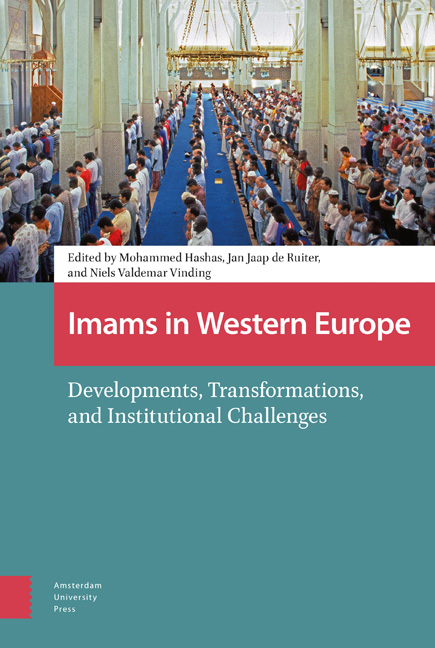3 - The Making of Islamic Authority in Europe
Published online by Cambridge University Press: 06 January 2021
Summary
Abstract
There is a growing body of scholarly work that addresses the transformations taking place in the ways Muslims experience, practice, and live Islam in Europe. One of the issues that have been taken up is the changing relationship between (established) religious authority and ordinary Muslims. There is a growing consensus that these relations are under pressure. Older, established configurations of authority are destabilized and increasingly challenged by rival voices and practices. However, neither the position that Islamic authority is simply generated from Islamic sources or the depiction of the Islamic landscape in Europe as thoroughly fragmented and individualized properly address the question of how religious authority is produced. How does authority become acknowledged, and how is it incorporated into people's life worlds? In this chapter, I argue that modes of religious knowledge production and conveyance do not just operate cognitively, but also involve a whole range of sensorial experiences that shape the relationship between religious practitioners and leaders.
Keywords: Islam in Europe, Islamic authority, globalization, knowledge production, lived Islam
The institutionalization of Islam in Europe
In the fall of 1977, an ideological conflict emerged between two groups of Turkish Muslims in the Netherlands. The conflict reached an apogee when a church located in a Rotterdam neighbourhood with a relatively large proportion of Turkish immigrants put its building at the disposal of Turkish Muslims during Ramadan. Two imams were invited from Turkey to lead the ceremonies. One belonged to the Süleymanli Movement, which had already been active among Turkish Muslims in Europe for years. The other was sent by the Turkish Directorate of Religious Affairs (Diyanet), the government department that regulates religious life in Turkey. The Diyanet feared that the Süleymanli Movement would gain more influence among Turkish Muslims at the time when the development of religious infrastructure in the Netherlands was gaining momentum. Both organizations claimed to speak on behalf of the majority of Turkish Muslims, so it was decided to let the attendees decide which of the two imams should lead the rest of the celebrations. The majority chose the Diyanet imam. Afterwards a debate broke out about how to interpret this choice.
- Type
- Chapter
- Information
- Imams in Western EuropeDevelopments, Transformations, and Institutional Challenges, pp. 51 - 68Publisher: Amsterdam University PressPrint publication year: 2018
- 1
- Cited by



